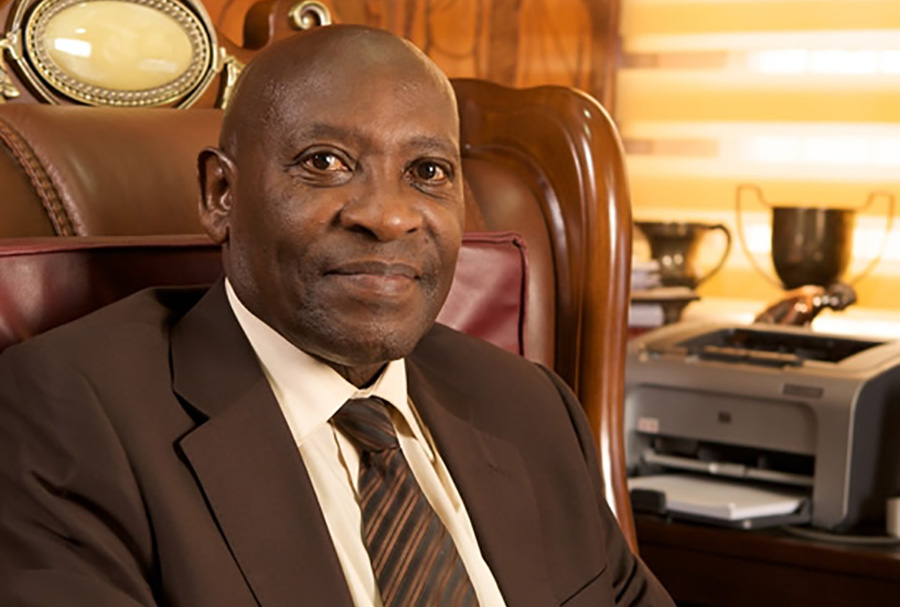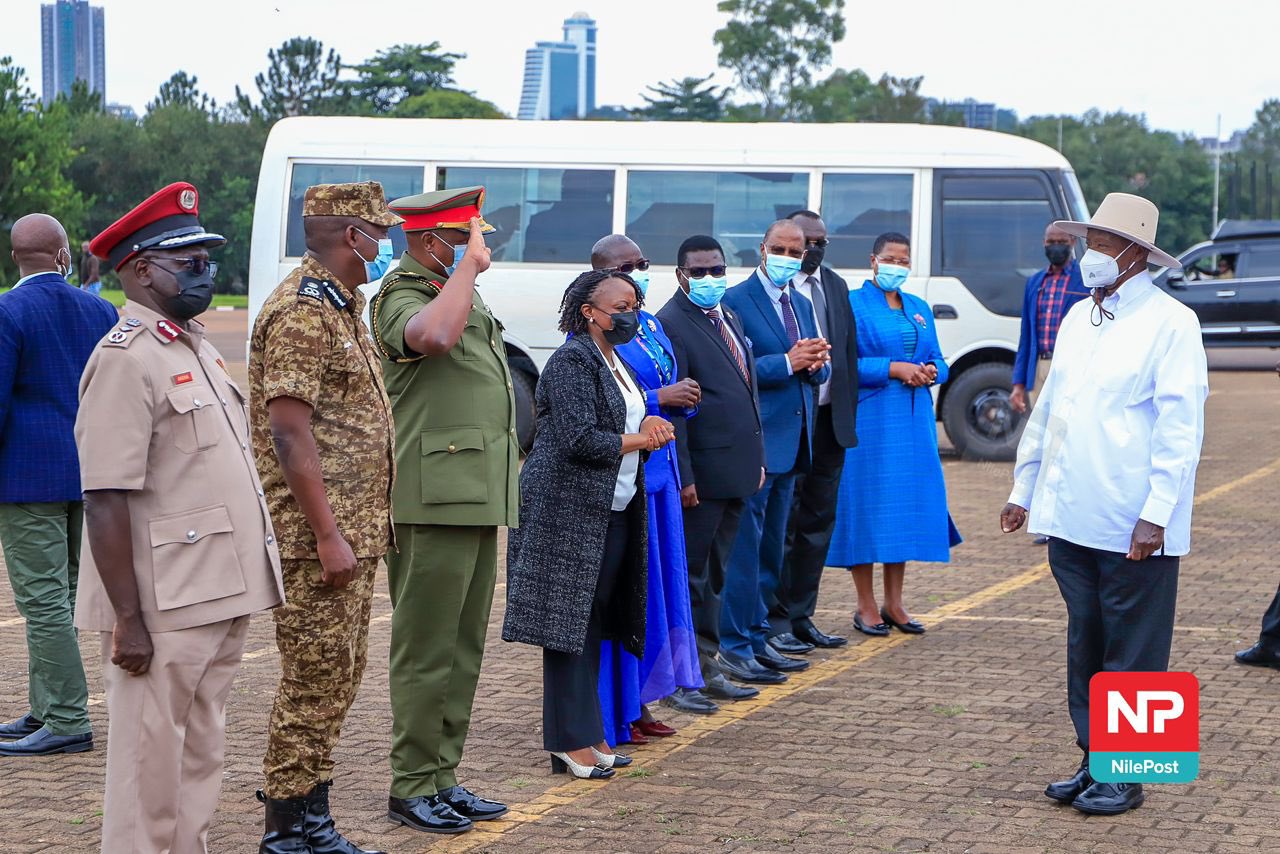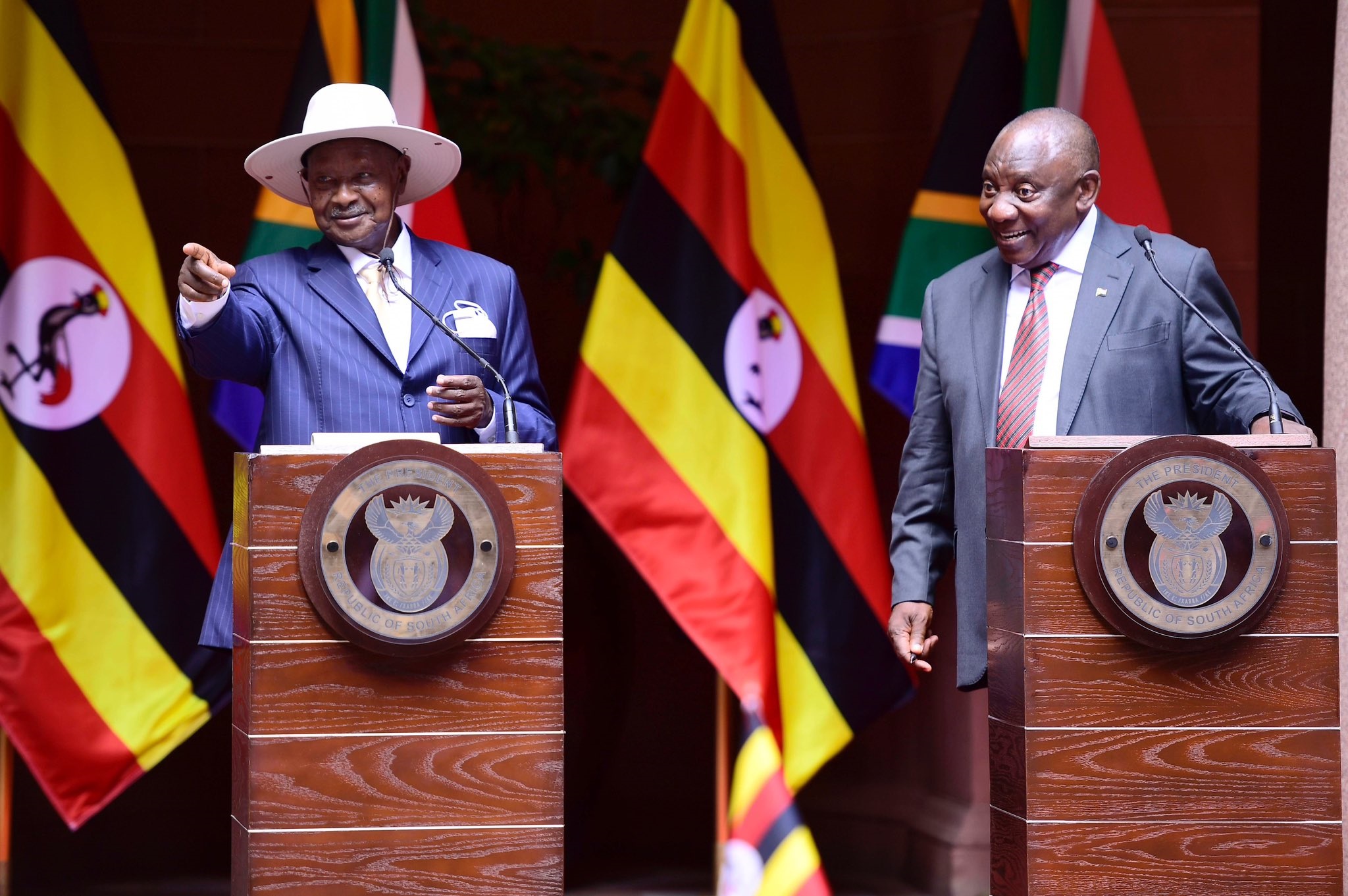Keep Reading
As parliament continues to receive opinions on whether to remove or maintain the presidential age limits in the Constitution, we highlight the number of times the Constitution has been amended with far-reaching impact on the politics of the country.
James Wapakhabulo, the then Constituent Assembly (CA) Chairman, chaired the session that convened in 1995, at the International Conference Centre, Kampala to consider and pass the Constitution of the Republic of Uganda.
In a highly publicized ceremony, President Museveni hailed the Constitution as the best in the whole world.
Now 22 years after, the Supreme Law of the Land is not the same with 65 of its original Articles already amended, making some legal experts such as Professor Frederick Ssempebwa to call for a total review of the Constitution.
These 65 amendments have been carried out under four Acts including the Constitution (Amendment) Act, 2000; the Constitutional (Amendment) Act, 2005, the Constitution (Amendment) (No.2) Act, 2005; and the Constitutional (Amendment) Act, 2015.

Besides these four sweeping legislations amending the Constitution, the fifth legislation is in the offing following the tabling of the Constitutional (Amendment) (No. 2) Bill, 2017 that seeks among others to amend Article 102(b) which caps the presidential age at 75 years.
The now controversial Bill was presented by Igara West MP Raphael Magyezi. The Bill has been strongly opposed by the Opposition, a section of the ruling National Resistance Movement (NRM) party MPs, legal experts, Civil Society Organisations (CSOs), and some religious leaders among others. Those opposed to the bill argue that it seeks to allow President Yoweri Museveni rule for life.
Below are the Constitution amendments:
The Constitution (Amendment) Act, 2000, Act No.13 of 2000)
The first Act amending the Constitution provided for the repeal and replacement of Article 88, amended Article 89, repealed and replaced Article 90, amended Article 97 and inserted a new Article 257A.
According to the preamble to the Act, Article 88 of Constitution was repealed and replaced to make a provision in relation to quorum in parliament, amended Article 89 of the Constitution to provide for the number of ascertaining the majority of votes cast on any question and others.
Article 90 of the Constitution was repealed and replaced to recognise the role of the committee of the whole House in the passing of bills and to make provisions in relation to the function of the committees of Parliament.
Also amended was Article 97 of the Constitution to protect the proceedings of parliament from being used outside parliament without the leave of Parliament and the insertion of a new Article 257A to ratify certain past acts relating to procedures.
However, this particular amendment act was challenged and declared unconstitutional and therefore null and void by the Supreme Court in the case of Paul Ssemogerere and others - vs - Attorney General, Constitutional Appeal No.1 of 2002.
Ssemogerere, then president of the Democratic Party had challenged the passing of the bill arguing that there was no quorum at the time Parliament passed it.
Court noted that the creation of Article 257A in the Constitution, now Article 258 in the 2000 revised edition, was inconsistent with Article 88 of the Constitution, which provides for the quorum of Parliament when voting on any question.
Article 88 and 90 introduced by this Amendment Act were later replaced by the Constitutional (Amendment) Act (No. 11) of 2005.
The Constitutional (Amendment) Act, 2005, Act No.11 of 2005
The second amendment to the Constitution followed the 2001 presidential election campaigns, during which government established a Constitutional Review Commission under the Commission of Inquiry (Constitutional Review) Legal Notice No. 1 of 2001.
The Constitutional Review Commission chaired by Prof. Frederick Ssempebwa completed its work on the 10th December, 2003 and submitted a report of its Findings and Recommendations.
 Prof Frederick Ssempebwa who chaired the CRC
Prof Frederick Ssempebwa who chaired the CRC
The then Cabinet, after studying the report, its findings and recommendations, prepared a Government White Paper in September, 2004.
The Legal and Parliamentary Affairs Committee of the 7th Parliament then considered the Government White paper and submitted its report on the 20th December 2004.
The Constitution (Amendment) Act 2005 saw 48 amendments made to the 1995 Uganda Constitution.
The objectives of this 2005 Act were distinguishing Kampala as a Capital City of Uganda under Article 5 and to provide for its administration and for the delineation of its boundaries.
The Act also provided for Swahili as a second official national language of Uganda under Article 6, provided for the return of political parties and for the Leader of the Opposition in Parliament under multi-party political system by inserting a new Article 82A under Chapter Six.
It also created the offices of Prime Minister under a new Article 108A and Deputy Attorney General under a new Article 119A among others.
In a controversial move, this Act also removed the term limits on the tenure of Office of the President. It amended Article 105 of the Constitution by repealing Clause 2 that provided for only two presidential terms of five years each.
It substituted Clause 2 by providing that a person may be elected to hold office as President on more terms.
This Act also amended Article 163 to provide for the independence of the Auditor General and the procedure for his or her removal, provided for the creation of special courts to handle offences relating to corruption, and established and prescribed the functions of a Leadership Code Tribunal among others.
The others amendments are the provision for the Control of Minerals and Petroleum, and provision for the holding of referenda generally.
The Constitution (Amendment) (No.2) Act, 2005, Act No.21 of 2005
Under this Act eight amendments were made to the 1995 Constitution and these were to provide for Kampala as the Capital City of Uganda, provide for the new districts, provide that subject to the existence of regional governments the system of local government in Uganda shall be based on a district as a unit of administration among others.
The other objectives of this Act were to replace Article 178 of the Constitution to provide for the creation of regional governments as the highest political authority in the region with political, legislative, executive, administrative and cultural functions and to provide for the composition and functions of the regional governments.
The Act also saw the insertion of a new Article 178A to provide for grants for districts not forming regional governments, replaced the Fifth Schedule to provide for details relating to regional governments and amended Article 189 to recognize the functions and services of regional governments.
The Constitutional (Amendment) Act, 2015, Act No.12 of 2015
This Act amended seven Articles in the 1995 Constitution.
It amended Article 60 by inserting a new clause 8 to prescribe a procedure for the removal of members of Electoral Commission, and require the Electoral Commission (EC) under Article 81(2) to hold a by-election within 60 days from the date of notification of a vacancy of a Member of Parliament and others.
The Act also provided for the requirement to the Registrar of a Court declaring the seat of a Member of Parliament vacant to transmit the judgement to the Clerk to Parliament within ten days after the declaration under Article 81(2a).
It also permitted floor crossing in Parliament by Members of Parliament within twelve months before the end of the term of Parliament. A new clause (2a) under Article 83 of the Constitution was inserted to this effect.
It also provided for Article 148A to allow the Judicial Service Commission to appoint certain staff of Judiciary.
The Constitution (Amendment) Bill, 2017
In this bill, tabled in June this year by Justice Minister Kahinda Otafiire, government pushes to amend Article 26 of the Constitution "to resolve the current problem of delayed implementation of Government infrastructure and investment projects due to disputes arising out of the compulsory land acquisition process."
The Bill seeks to enable Government, or a local government to deposit with court, compensation awarded by the Government for any property declared for compulsory acquisition.
The bill further seeks to empower the property owner or person having right over the property to access the deposited compensation awarded at any time during the dispute resolution process among others.
The Constitutional (Amendment) (No.2) Bill, 2017
This Constitutional (Amendment) (No.2) Bill, 2017 currently being considered by the Legal and Parliamentary Affairs Committee seeks to amend other four articles in the Constitution.
Besides the proposed amendment of Article 102(b), MP Raphael Magyezi's Bill also seeks to remove the 75-year age cap on those contesting for district chairpersons' seats, which is provided for under article 183 (2) (b) of the Constitution.
The bill also seeks to amend Article 61(2) of the Constitution to provide that the Electoral Commission shall conduct a general election within the first 30 days of the last 120 days before the expiry of the term of the office of the president.


















